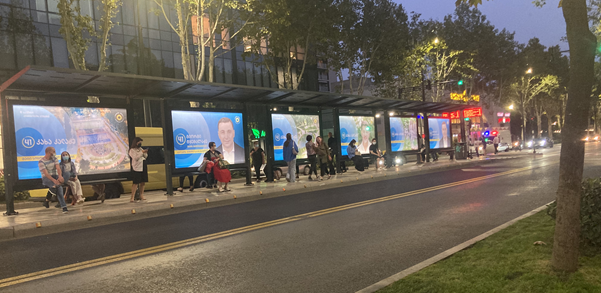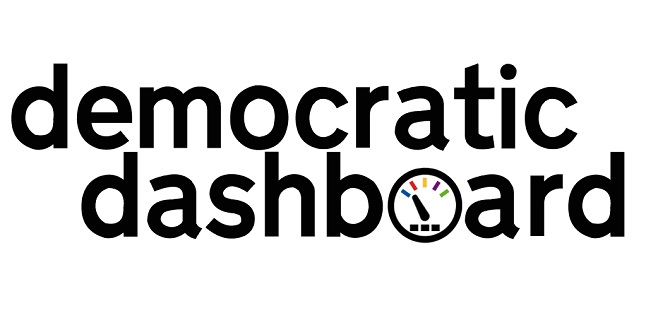On 2 October, citizens in the Republic of Georgia will elect local assemblies and mayors in all 64 of the country’s municipalities. The elections hold particular significance this year as the ruling party, Georgian Dream, previously agreed to hold early parliamentary elections if it fails to win at least 43 per cent of the vote. Sean Mueller writes that although the government later reneged on this EU-brokered deal, the local elections are still perceived by some as a plebiscite and could thus mark the beginning of yet another turbulent period in Georgian politics.
The great thing about local elections is that suddenly stuff gets done. Need to get rid of a dead tree in your garden? One call to the municipality and a whole crew shows up. Potholes in the village? Fixed. Outstanding fines for violating a Covid-19 stay-at-home order? Erased.
But the importance of the upcoming local elections in Georgia does not derive from the legal or financial autonomy of Georgian municipalities, which rank among the least powerful in Europe. Instead, what marks these elections out as particularly significant is that the governing party, Georgian Dream, previously agreed in April to an EU-brokered political deal with the opposition that stipulates “early parliamentary elections shall be called in 2022 if the Georgian Dream party receives less than 43% of valid proportional votes in the October 2021 local self-government elections”.
That agreement, mediated by European Council President Charles Michel himself, was necessary because all eight opposition parties that cleared the 1% threshold in the Georgian parliamentary elections in October last year accused Georgian Dream of rigging the vote and subsequently boycotted parliament. The problem with the April 2021 agreement is that the main opposition party, former President Misha Saakashvili’s United National Movement (UNM), only signed up to it in September – that is, after the governing party had already withdrawn from it in July. And the reason why Georgian Dream withdrew from the agreement? Because the main opposition party had not signed it…
Old scores, new scores
This may seem like the kind of argument you would expect in a school playground. And for good reason – the conflict between the two main parties, Georgian Dream and the UNM, goes back to 2012 and is in many ways a conflict between two men. Saakashvili famously rose to power in the Rose Revolution of 2003, securing 68% and 59% of the proportional vote in the parliamentary elections of 2004 and 2008. Given the nature of Georgia’s parallel voting system, with between a third (1992–2004) and half (2008–16) of MPs elected using a first-past-the-post system, Saakashvili managed on each occasion to secure over 70% of seats in parliament (Figure 1).
Figure 1: Vote share and percentage of seats won by largest party in Georgian parliamentary elections (1992–2020)
Source: IPU
In 2012, however, Saakashvili was beaten by a completely new player: billionaire-turned-politician Bidzina Ivanishvili and his newly created Georgian Dream party. Georgian Dream won 55% of the proportional vote, followed by 49% in 2016 and 48% in 2020. Again, the majoritarian element of the electoral system (grossly) exaggerated the outcome, providing Georgian Dream with 57%, 77% and 60% of all seats.
In fact, while by 2020 the majoritarian component had been lowered to 20% of all seats (from 73 seats down to 30, out of the 150 seats in parliament), Georgian Dream won them all. Meanwhile, another change in the electoral system, the lowering of the threshold for the proportional contest from 5% to 1%, has benefitted the government, since the parliamentary opposition is now fragmented into no less than eight parties: the UNM with 36 seats and seven others with between one and five seats. Given their collective impotence and internal rivalries, the opposition parties have no choice but to treat the upcoming local elections as a plebiscite on the government. Meanwhile, adverts for Georgian Dream dominate the media and public spaces.
Georgian Dream election posters at a Tbilisi bus station. Credit: Sean Mueller
Normally, local elections are a way for the government of the day to install its party faithful throughout the country. In 2017, with Georgian Dream in power for just five years, the party won 63 out of 64 mayoral contests and a mean seat share across the local assemblies of 78% (60% across proportionally chosen seats, 93% across majoritarian seats: there are parallel systems at the local level, too). Voters themselves often prefer somebody close to the government to get things done.
But next to the opposition calling the elections a referendum on the government and the – probably defunct – April agreement confirming this, two further developments could cause a surprise. First, the country has faced one of the worst fourth Covid-19 waves worldwide, with confirmed cases reaching up to 1,200 per one million inhabitants in mid-August this year. By comparison, the UK peak was 880 per one million, in January this year (Figure 2). Georgia’s vaccine roll-out was comparatively slow, with the government forced to rely on help from the World Bank and donations by the US and the Red Cross.
Figure 2: Covid-19 cases in Georgia and selected countries
Source: https://ourworldindata.org/covid-cases (16.9.2021)
Second, in July, the government utterly failed to contain a counter-demonstration against a series of Pride events planned by the organisation Tbilisi Pride. Members of the LGBTQ community as well as journalists were attacked by an angry mob, with opposition to Tbilisi Pride voiced by the Patriarch, the leader of the Georgian orthodox church, and Prime Minister Irakli Garibashvili of Georgian Dream. The main march was subsequently called off and one cameraman died after being attacked. With nobody else to blame, citizens unhappy with the government’s public health approach and/or its cavalier attitude to law and order may yet punish the only power holder in town.
Note: This article gives the views of the author, not the position of EUROPP – European Politics and Policy or the London School of Economics. Featured image credit: Neil Sengupta on Unsplash






